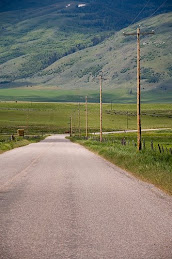This past week has been like no other we have experienced in a long, long time, if ever, so I am very tardy in reporting on last Thursday's session with Brother Avraham Gileadi, but I thought I should do so before going off to the sixth class tonight.
Although we are studying Isaiah, we spent much of the two hours in our fifth class reading and discussing parts of five chapters from two other Old Testament prophets: Ezekiel and Jeremiah. The intent, as I understood it, was to illustrate that Isaiah, Ezekiel, and Jeremiah were all on the same page, as prophets of the Lord were all teaching the same message, and were all seeing down to the end of times, our dispensation, and prophseying of the Lord's latter-day servant who would assist in the gathering of Jacob or Israel.
We need a foundation in the Old Testament, Brother Gileadi affirmed, in order to understand the rest of the scriptures.
Old Testament > Book of Mormon > New Testament > Doctrine and Covenants
The Book of Mormon, for example, as the above little diagram illustrates, begins in and grows out of an Old Testament setting and culture. It assumes a deep familiarity with the Old Testament. Then as a premier witness of Christ and His mission, the Book of Mormon prepares us for and helps us really understand what the New Testament is about. And so forth.
We read from Ezekiel 34. Sheep are a metaphor for the Lord's people. Beasts are a metaphor for Satan's people. The word "meat," as translated in the King James Version of the Bible, signifies "food." Mountains and hills signify nations.
The Lord is always looking out for the poor. The Lord will search for and deliver them from all the places "where they have been scattered in the cloudy and dark day" (see verse 12). Causing them to "lie down," as in verses 14 and 15, signifies rest, peace, and security. The "deep waters" mentioned in verse 18 refers to the deep things of God. Joseph Smith once wrote that he was wont to swim in deep waters (see D&C 127:2). The shepherds of the people were privy to the deep doctrines, the deep things of God, but muddied it up for others.
The Lord is always gathering. Verses 23 and 24 reference the latter-day servant of the Lord, who will be called David. Verse 25 and beyond describe the Millennial era, when evil will be gone from the earth, when there will be no more telestial people around, and the Lord's people will be safe in the land (see verse 27).
We then turned to Ezekiel 37 and, beginning with verse 15 to the end of the chapter, talked about the uniting of the tribes of Israel into one nation. The sticks, although we commonly in the Church refer to them as the records of the two nations, in the actual context of this chapter refers to the two nations or kingdoms. The Lord is speaking of making the two nations into one. The reference in verse 23 that they shall "be my people and I will be their God" is covenant language (see also verses 26 and 27 and also Ezekiel 34:24).
A latter-day reference to the stick of Ephraim makes it clear that the stick actually refers to the house or tribe or nation of Ephraim (see D&C 27:5). Otherwise, the passage would be redundant, and the Lord would be saying that He had committed the keys of the record of the record of Ephraim.
Next we read from Jeremiah 23, where it opens with the same woe pronounced against the leaders of the people (the "pastors" referred to by Jeremiah comes from the same word in Hebrew as the "shepherds" in Ezekiel). The rise of the latter-day servant always comes on the heels of the abuse by the shepherds or pastors of the Lord's people. We see the same scenario in Isaiah, in Ezekiel, and in Jeremiah.
We then turned to Jeremiah 30, where it speaks of the latter-day servant David. The chapter heading interprets David as Christ, but it is clear from other passages in Isaiah and Ezekiel and Jeremiah that the David mentioned in verse 9 is the latter-day servant of Christ. Jesus Christ or Jehovah is the Lord their God, and David is a king who serves under Him. The Prophet Joseph Smith seems to assert the same thing: "The throne and kingdom of David is to be taken from him and given to another by the name of David in the last days, raised out of his lineage" (Teachings of the Prophet Joseph Smith, 339).
Compare also Jeremiah 33:14-16. And Doctrine and Covenants 113:1-6, which is a revealed commentary on certain verses in Isaiah 11 that speak of Christ as the Stem of Jesse and the rod of Jesse and the root of Jesse as a servant in the hands of Christ and who will hold "the keys of the kingdom, for an ensign, and for the gathering of my people in the last days" (D&C 113:6).
In Jeremiah 30:11 the Lord declares that in the last days He will make a full end of the nations but not of thee, meaning Jacob or Israel.
The Old Testament prophets know that what they are writing is ambiguous, and they seem to do it on purpose, as a test, to weed people out who are not spiritually attuned to understand and receive the message. From that vantage point, it is a merciful thing they do.


No comments:
Post a Comment